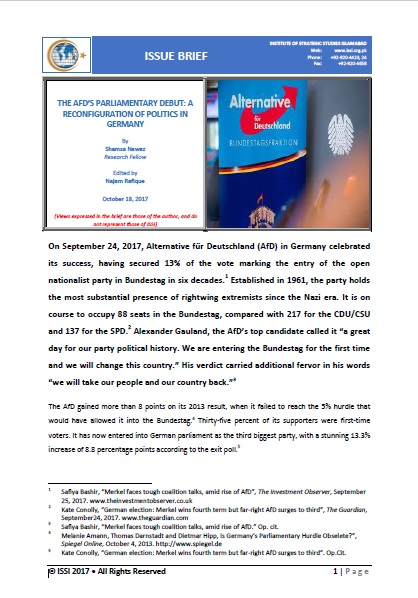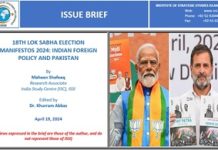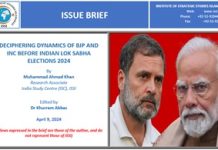On September 24, 2017, Alternative für Deutschland (AfD) in Germany celebrated its success, having secured 13% of the vote marking the entry of the open nationalist party in Bundestag in six decades.[1] Established in 1961, the party holds the most substantial presence of rightwing extremists since the Nazi era. It is on course to occupy 88 seats in the Bundestag, compared with 217 for the CDU/CSU and 137 for the SPD.[2] Alexander Gauland, the AfD’s top candidate called it “a great day for our party political history. We are entering the Bundestag for the first time and we will change this country.” His verdict carried additional fervor in his words “we will take our people and our country back.”[3]
The AfD gained more than 8 points on its 2013 result, when it failed to reach the 5% hurdle that would have allowed it into the Bundestag.[4] Thirty-five percent of its supporters were first-time voters. It has now entered into German parliament as the third biggest party, with a stunning 13.3% increase of 8.8 percentage points according to the exit poll.[5]















